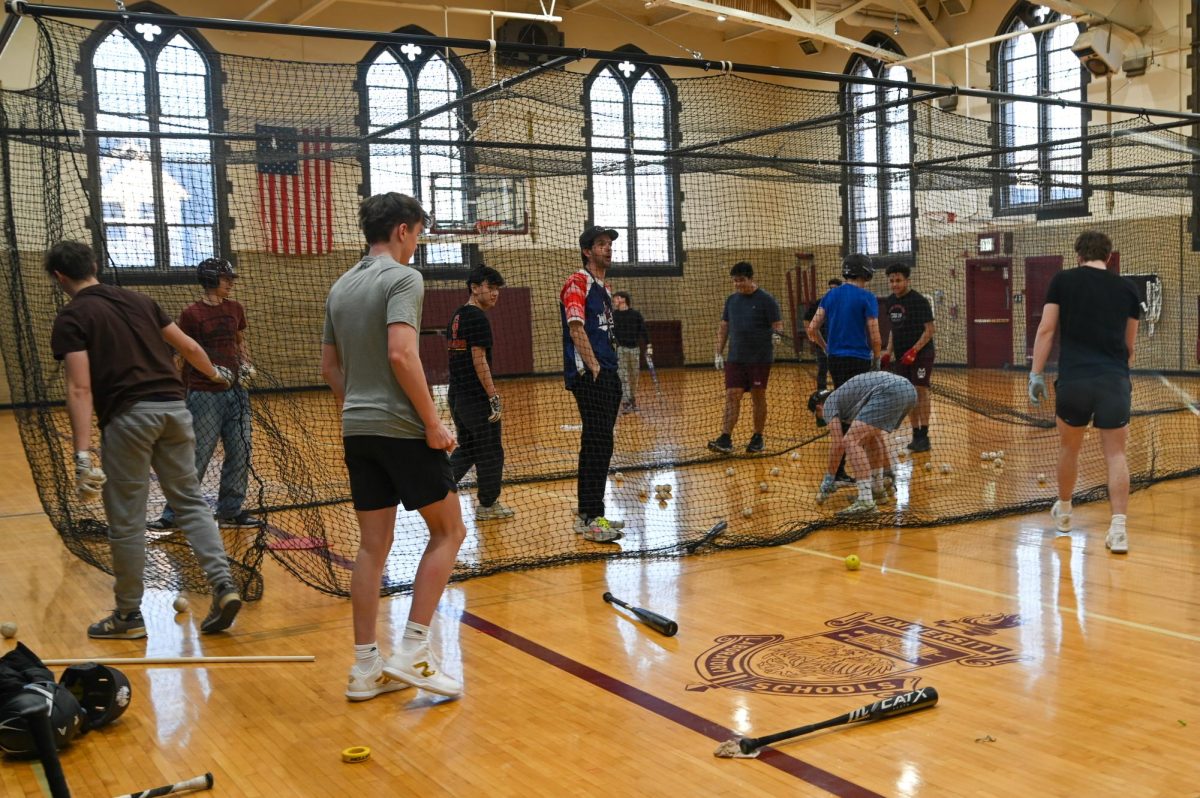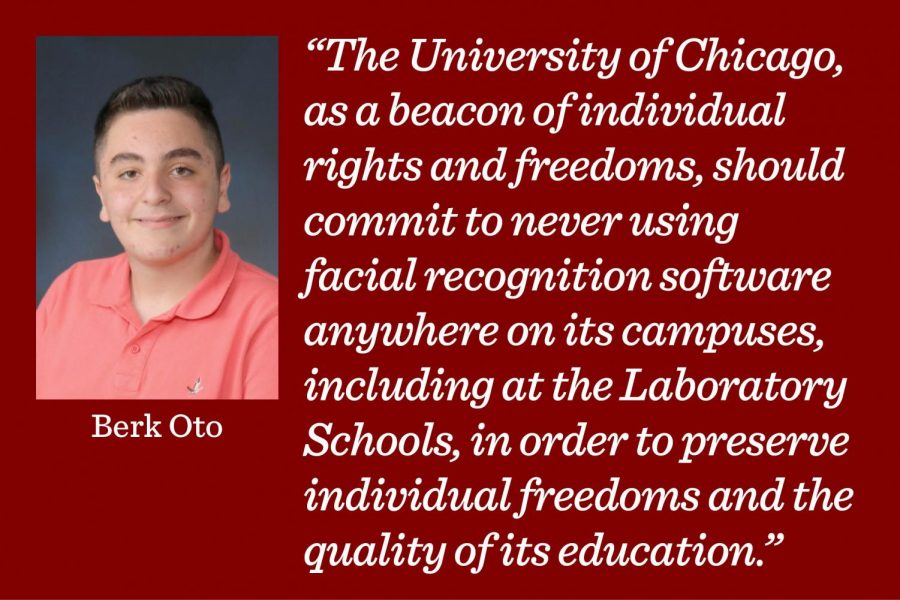Lab and the University of Chicago should commit to never using facial recognition
March 5, 2020
Walking into class, they hear the subtle, yet intrusive hum of cameras turning, following their every footstep. Once they arrive to class, the cameras are hidden, but their phone continues to transmit their location to the attendance office. They pick up their phone to check a text. Immediately, a notification is sent to them, their classmates and their teacher that they are not paying attention. Every step is recorded. Every move is on camera.
While this horrifying fictional tale may seem like a segment from a distant Orwellian future, similar plans have been proposed or implemented in high-profile campuses like Syracuse University, the University of California, Los Angeles and the University of San Francisco. The University of Chicago, as a beacon of individual rights and freedoms, should commit to never using facial recognition software anywhere on its campuses, including at the Laboratory Schools, in order to preserve individual freedoms and the quality of its education. At the moment, they avoid making such a commitment even when asked directly.
In China, the implementation of facial recognition technology is leading to the rapid erosion of personal freedoms such as assembly and religion. The University of Chicago has long recognized these tenets as core values, and a great way to honor this tradition is to lead the charge against the use of technologies that violate the privacy of students and faculty.
While Americans may have already surrendered most of their privacy to big social media companies like Facebook, it is important to draw the line where our inalienable freedoms are being transgressed. And that’s facial recognition.
The use of facial recognition technologies will inevitably make our students feel like prisoners in a place meant for learning and experimentation. The resulting violations of privacy will create an environment where students are too afraid of consequences to make mistakes and learn lifelong lessons. This is directly counter to Lab’s mission of learning experientially.
Facial recognition technology would inhibit our ability to build genuine relationships by conjuring the feeling that one is constantly being watched — even when engaging in everyday interactions. This violates Lab’s mission of exhibiting kindness.
Finally, according to a study by the National Institute of Standards and Technology, current facial recognition has difficulty individually identifying people of color and transgender people. On a campus, this would lead to the constant false police stops of minority students — a far cry from honoring diversity.
Proponents of the implementation of facial recognition technology argue that if you have nothing to hide, there is no reason to be afraid. However, even if the software were to work flawlessly, what little security gains we might achieve are certainly not worth the rights to privacy and expression that we would inevitably surrender.
As Benjamin Franklin put it almost 200 years ago, “They who can give up essential liberty to obtain a little temporary safety deserve neither liberty nor safety.”































































